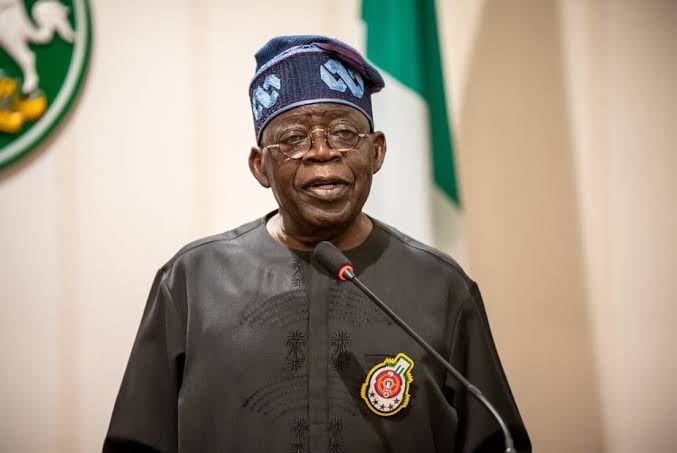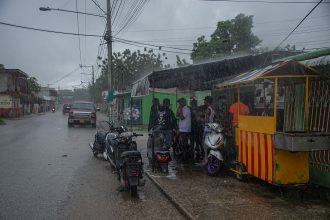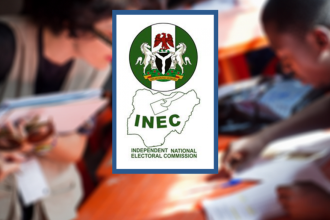A public policy think tank, the Independent Media and Policy Initiative, has declared that the anti-poverty measures being implemented by the administration of President Bola Tinubu are more expansive and structured than those of previous governments, describing them as “institutionalised, multi-sectoral programmes” with greater potential to deliver sustainable results.
In a policy statement signed by its Chairman, Omoniyi Akinsiju, on Sunday, IMPI said the Tinubu administration’s approach was fundamentally different from the ad-hoc and often duplicative initiatives of past administrations, which failed to significantly lift millions of Nigerians out of poverty despite massive oil revenues.
According to the think tank, the government’s strategy covers diverse sectors and categories of Nigerians, from the unemployed youth and vulnerable families to pensioners, artisans, and small-scale farmers.
“The Independent Media and Policy Initiative has said that the poverty-reduction measures of the President Bola Tinubu administration are more expansive than those of previous administrations, and are consequently more likely to succeed. What the federal administration has in place are institutionalised multi-sectoral programmes that are better suited to different categories of people.
“These include subsidised access to dialysis, which slashes the cost of treatment from N50,000 to N12,000 per session, already being implemented across federal hospitals in all six geopolitical zones.
“The Tinubu administration has adopted a multi-sectoral approach that is better suited to different categories of people as part of efforts to ensure that more Nigerians feel the impact of the ongoing reforms,” the statement noted.
Other initiatives include agricultural micro-loans of up to N100,000 per beneficiary under the revived FarmerMoni scheme; an expanded National Home-Grown School Feeding Programme targeted at 20 million pupils; and a N32,000 monthly pension increase for retired federal employees, backed by a N758bn bond approved by the President.
The administration has also launched the Tertiary Institutions Staff Support Fund, the Creative Economy Development Fund, offering creative entrepreneurs access to up to $100,000 in grants and equity funding, and a new national skills initiative aimed at connecting 20 million young Nigerians to jobs and training by 2030.
Additionally, a World Bank-supported vocational programme, Innovation Development and Effectiveness in the Acquisition of Skills, domiciled in the Ministry of Education, is expected to train 30,000 youths in 36 technical areas.
The government is also rolling out cash transfers for 15 million vulnerable households and the Digital Access and Livelihood Initiative, designed to connect digital training directly to guaranteed jobs and enterprise pathways.
The policy group drew a sharp contrast between the Tinubu administration’s efforts and those of previous leaders, including Olusegun Obasanjo, Goodluck Jonathan, and Muhammadu Buhari.
It recalled that while Buhari’s National Social Investment Programme, comprising N-Power, GEEP, Conditional Cash Transfer, and the National Home-Grown School Feeding Programme, laid a foundation for social safety nets, most earlier interventions lacked institutional continuity.
Earlier attempts, such as the Directorate for Food, Roads and Rural Infrastructure, National Directorate of Employment, Better Life Programme, People’s Bank of Nigeria, and National Poverty Eradication Programme, were described as “money-guzzling, one-size-fits-all schemes” that had little long-term impact.
IMPI cited Keke NAPEP, the tricycle empowerment programme under Obasanjo’s government, as an example of an unsustainable intervention that failed to address structural poverty.
In a separate policy analysis, the group blamed decades of poor resource management and inappropriate fiscal policies for the country’s persistent poverty, even during oil boom periods between 1980 and 2015.
“Poverty did not just happen in the Nigerian economic sphere; it was consequent upon a deliberately concocted mix of inappropriate policies deployed by a ruling elite that had no idea of how to manage the huge revenue earned from crude oil exports to impact growth and development,” IMPI stated.
It explained that Nigeria’s economic trajectory reflected symptoms of the “Dutch disease”, a condition in which rising oil revenues led to an overvalued currency, decline in local production, and collapse of agricultural exports such as cocoa, palm oil, and rubber.
“The misallocation of resources in agriculture included the construction, but not completion, of massive irrigation projects that yielded little productivity. Fertiliser and interest rate subsidies were largely captured by large-scale farmers, leaving smallholders poorer,” it said.
According to the think tank, these distortions caused a decline in real wages from 1976 to 1994, especially in the industrial and urban sectors, while rural productivity suffered from excessive mechanisation and urban migration.
Despite periods of strong GDP growth, IMPI said, poverty rates remained stubbornly high because successive governments failed to invest in labour-intensive sectors or create an adequate safety net for vulnerable groups.
“Although GDP growth reached 7.9 per cent in 2010 and 7.44 per cent after the 2014 rebasing, poverty levels continued to rise. Nigeria had become a jurisdiction of disproportionate vulnerability, with a high percentage of poor citizens relative to its total population,” the group noted.
It attributed this mismatch between growth and welfare to the “Nigerian disease”, a chronic pattern of policy mismanagement, elite capture, and exclusionary economic practices.
IMPI expressed optimism that the Tinubu administration’s reforms, if sustained, could significantly alter Nigeria’s poverty trajectory and challenge the World Bank’s projection that 139 million Nigerians could fall below the poverty line by the end of 2025.
The group maintained that multi-dimensional poverty could only be tackled through a multi-pronged strategy, one that integrates healthcare, education, agriculture, and digital inclusion, which it said the current government appears to be pursuing.
“What the administration has put in place are not generic palliatives, but structural, institutionalised mechanisms targeting different categories of Nigerians. It is a more strategic, inclusive and sustainable pathway out of poverty,” IMPI concluded.
Earlier schemes like the National Poverty Eradication Programme (NAPEP) and others were dismissed as “money-guzzling, one-size-fits-all schemes” that lacked institutional continuity and long-term impact, failing to address structural poverty.









